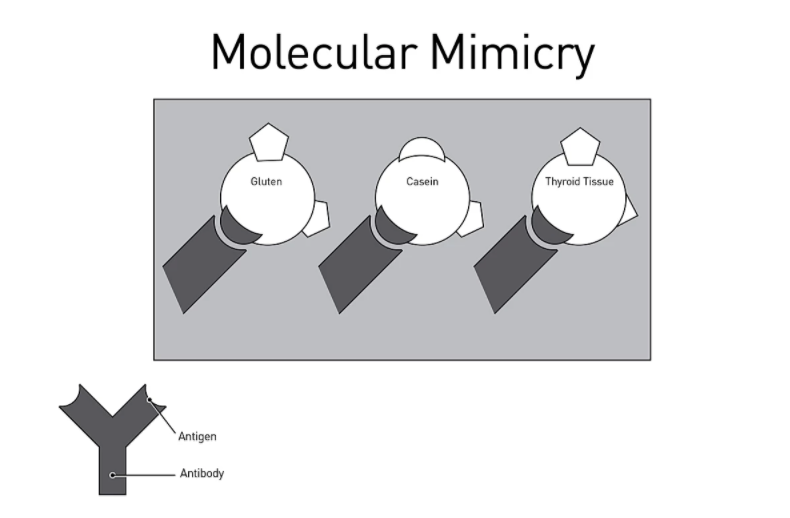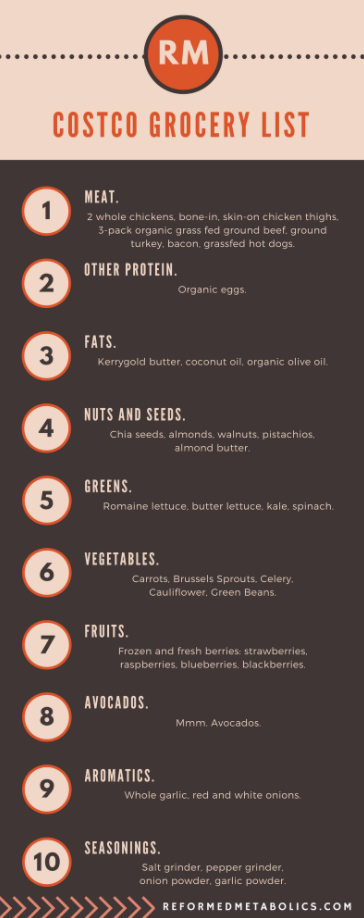WHO NEEDS TO CUT OUT GLUTEN AND DAIRY?
If you struggle with autoimmune disease, should you eliminate gluten and dairy?
If you don’t struggle with autoimmune disease, should you eliminate gluten and dairy?
Like, really eliminate? Or give them up on the weekdays? Or during the day?
Let’s be honest… sometimes that whole dairy/gluten free thing goes out the window after a smidge of Zinfindel.
But if you have any issues with chronic autoimmune problems, it really may help you to take a break from both gluten and dairy.
Specifically, if you are dealing with thyroid issues, I would highly recommend cutting the gluten and dairy.
On that note, if you have problems with your thyroid and your doctor has never tested your TPO antibodies, ask for this test. A TSH test tells only a tiny part of the problem- that your HPA axis is not communicating effectively. A TPO antibody screen will tell you if you are dealing with Hashimoto’s disease, which affects up to 80% of all hypothyroid women.
You need to know this so you can construct a thyroid-disease-ass-kicking diet and supplement plan.
WHY DO GLUTEN AND DAIRY AFFECT THE THYROID?
First things first.
What is gluten? It is a gluey protein found in wheat and other grains. It makes bread taste soft and fluffy and delicious. It also activates a chemical in the small intestine called zonulin. Zonulin signals the epithelial cells to weaken and spread apart, causing leaky gut. Gluten is a sneaky intruder, giving the secret knock to the epithelial cells so that he can sneak into the bloodstream, causing chaos and disease. He eats all of your chocolate stash and never says, “thank you.”
This phenomenon does not happen with every individual, but for some reason, those prone to autoimmune disease will have a leaky gut nearly 100% of the time.
Moving on.
When that gluten protein leaks through the gut cells and into the bloodstream, it produces an antigenic response in the body. Your immune system recognizes it as a foreign invader and mounts an innate immune response to the intruder, automatically trying to neutralize and destroy it.
If gluten is a part of your diet, 1-3 times a day, every day, then your adaptive immune system begins to kick in. Your brilliantly created body begins to see a pattern- gluten protein in the bloodstream means a quick and predictable immune response. This may look like itching, hives, sneezing, rashes, irritability, PMS, digestive issues, and more. Sometimes symptoms can be delayed for hours or even days, making gluten a rather insidious and dark party guest.
Why does this matter to those suffering with thyroid disease?
Gluten proteins and thyroid tissue look nearly identical. Casein looks very similar to the molecular structure of both of these as well.

(Image credit to the brilliant Dr. Amy Myers).
Right?
By constantly being exposed to gluten, your body has been practicing its adaptive immune response for an extended period of time.
After awhile, your body realizes that your thyroid tissue looks reeeeal similar to gluten proteins. And your body is already in attack mode, seeking out and attempting to destroy gluten.
So naturally, it begins to seek out and destroy anything that looks like this nasty, known invader. And your poor thyroid begins to suffer. And you, poor thing, begin to suffer. You begin putting on weight. Your hair begins to fall out. You can’t sleep. But you still want to nap. Your PMS starts raging again.
Notice that the dairy protein, casein, has a similar structure as well.
This is why gluten, dairy, and a compromised thyroid are a trifecta of disaster.
So, what can you do?
1. Really, truly, cut out the gluten and dairy. Use my shopping list next time you go to the store. Seek out new veggies and fruits. Use squash and coconut oil when you want something filling and comforting. Use ghee and broiled broccoli to make a crispy, salty snack if you want crackers. Make a bulletproof coffee if you want something creamy.

(This says Costco but can be extrapolated to any grocery store. Contact me if you need a list for another store.)
2. Take care of the rest of your body. As an FDN, I encourage my clients to address health from a holistic point of view- diet, rest, exercise, stress relief and supplementation all have equal footing in my book. You can eat a perfect diet, but if you are micronutrient deficient or if you hold on to chronic stress, you will not get better.
3. Realize that dairy and gluten removal is not a life sentence. There are hard things in life. This is not hard. And it is a personal choice! You may be able to manage your hypothyroid through other, more conventional means. But I encourage you to look to the root- why are you dealing with this issue in the first place?
If you start there, you may find yourself feeling better.
Yours in health,
Jennifer Woodward, FDN-P






